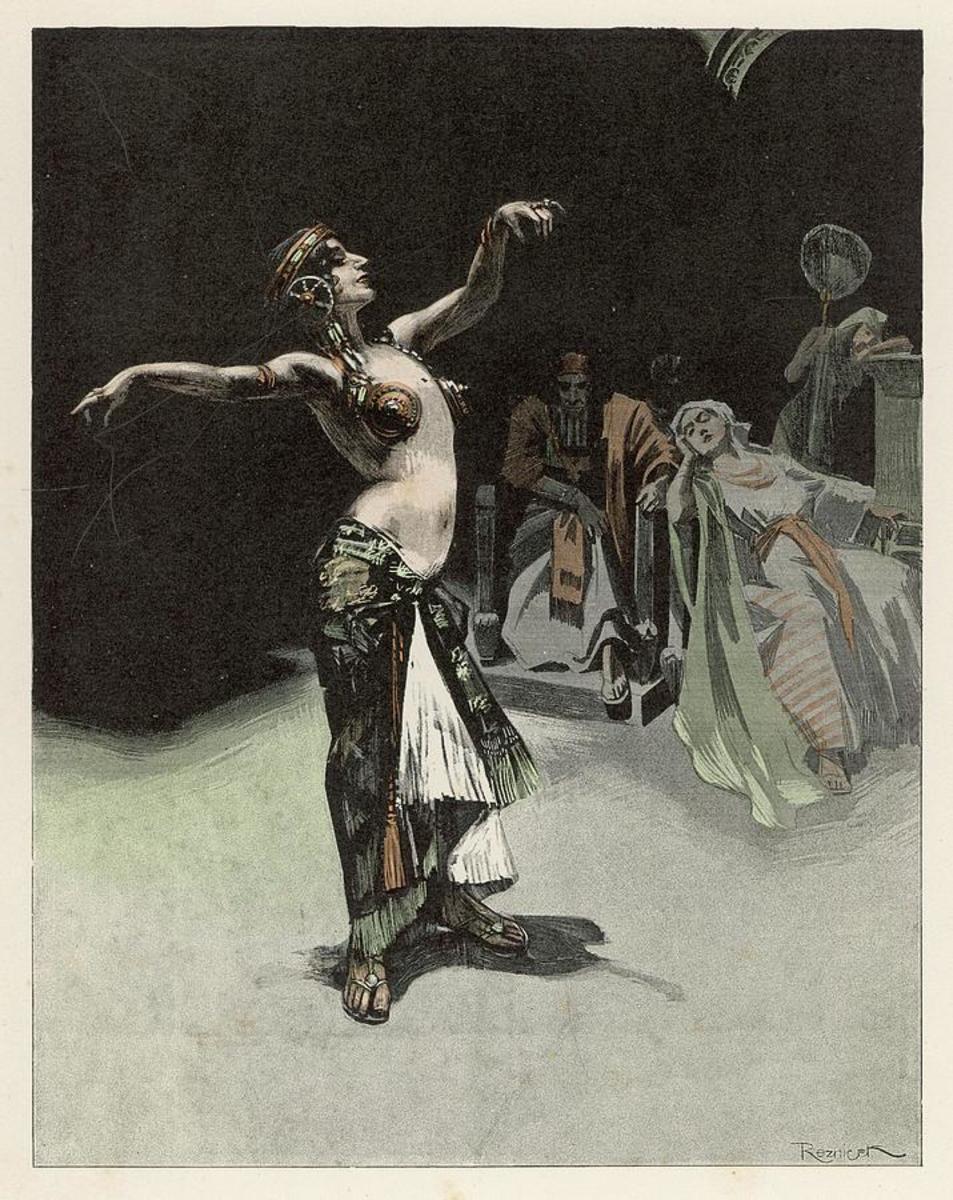Servant Leadership: A Challenge to Become Great in God's Kingdom
Biblical Precepts on Servant Leadership
Servant Leadership: A Challenge to Become Great in God’s Kingdom
Today, many believers are seeking to be mentored by sincere, genuine faithful leaders. Unfortunately, throughout the years, the church’s organizational structure has been the epitome of hierarchical power and rule. During these last two decades this author has witness the disappointment of church members when his or her pastor fails to exemplify in ministry the characteristics of Christ. This lack of spiritual responsibility on the part of the leader, to behave in a manner worthy of Christ’s calling and to serve one another in love has caused many to turn away from any church affiliation. In addition, not only have many walked away from the church, this problem has been a huge deterrent for many from wanting to become part of the local church. This crisis in leadership can be focused on the lack of a true servant’s heart within church leaders. The purpose of this paper is to bring clarity for church leaders who desire to serve as Christ and who long to see the Lord Jesus glorified both in deed and word. This paper will attempt to adequately portray the role of a servant leader as per Christ’s exemplified teachings.
Biblical Precepts on Servant Leadership
The related literature will help in bringing about answers to the following related questions: What should a servant leader’s heart be grounded in? Whom does the servant leader reflect? What is Jesus’ example of kingdom-centered leadership? How do words like power and authority line up with the idea of servant leadership? What were some ways in which the primitive church modeled Jesus’ example of servant leadership? How an aspiring church leader can put into practice servant leadership in the twenty-first century church? Last, who is ultimately responsible for God’s flock?
The Spiritual Position of a Servant-Leader
First, a spiritual servant leader should be purpose driven. He needs to understand and implement God’s purpose for the Church and be the agent by whom others may come to know and see Christ. Second, the leader must be goal oriented. A servant leader should always remember that the ultimate goal for the Body of Christ is to be conformed to the image of Christ. And last, the servant leader must be a visionary. A servant leader must be willing to permit the Holy Spirit to work in and through him or her so that God’s vision may be carried out on earth as it is in heaven. The purpose, goal, and vision must be unanimous in order for a servant-leader to be effective in his or her role as leader. These three points help one to keep God in the center of one’s ministry and life and this is the basis by which one develops into a servant leader.
The Heart of a Servant-Leader
First and foremost, a servant leaders’ heart should be a reflection of the Father’s heart. Christ’s example of the Father’s heart was not only seen through the redemptive work he accomplished on the cross but throughout his entire earthly ministry. His love was demonstrated moreover the moment that he willingly chose to take on the role of a servant in order to reconcile the world to the Father (Eph. 1:10; 3:10). Even though Jesus is King, he willingly chose to abase himself and take on the role of servant. Kroeger affirms that while the sacrificial service of a servant leader can not be salvific in the way that Jesus’ was, it is nonetheless the model from which flows spiritual fruitfulness and spiritual authority (555). This model of servanthood put to action the sentiments of Jesus’ heart condition, a heart which is deep rooted in love for both the Father and all mankind. Greenleaf affirms that it is precisely this deep longing desire to make sure that the needs of others are met that sets servant leaders apart from others (27).
The Kingdom-Centered Leader
Jesus’ earthly ministry of service to others exemplified kingdom centered principles and mandates. Congruously Anthony observes that Jesus’ example for his disciples is kingdom centered leadership that is shown through service that truly is concerned for the well-being of others, and flows from a noble and humble heart (626). Jesus removes all ambiguity of kingdom mandate for service. According to Achtemeir, Jesus presents his own obedience to the mission given him by God and his own orientation to others as exemplary for those who embrace the kingdom of God (137). In Jesus’ service to others he not only gave us an example on how to live a moral life, but he also showed us the mode by which he chose to reveal the Father to the world. In other words, his service was a revelation of God’s persona, an eternal ever-giving Spirit, full of grace and truth (John 14:9). Included in this revelation came the revolutionary concept that to be great in God’s kingdom one must learn to be the servant of all.
“And there arose also a dispute among them as to which one of them was regarded to be greatest. And He said to them, "The kings of the Gentiles lord it over them; and those who have authority over them are called 'Benefactors. But it is not this way with you, but the one who is the greatest among you must become like the youngest, and the leader like the servant. For who is greater, the one who reclines at the table or the one who serves? Is it not the one who reclines at the table? But I am among you as the one who serves” (Luke 22:24-27).
Jesus’ words offer his disciples a more holistic concept of greatness. His words
disclose that the social-economic class that is found in this world’s governing system is non-existent in God’s kingdom. Last, his words reveal the stepping stones to greatness. They divulge the modus operandi of God’s kingdom and the explicit tenet that is established by God’s sovereign rule. Jesus unequivocally implements kingdom principles both in word and deed and now he has called all those who aspire to be great in the kingdom to become a servant of all. Congruently Lane affirms that Jesus consciously opposes to the order of earthly rule the vocation of servant. Thus rank and authority are demonstrated in one’s service to God for the good of others. This concept is a reversal of all human desire for greatness and power, one that Jesus achieved when he came to serve and not be served.
Clearly Jesus’ words in this narrative are a continuation of his earlier claim that to enter into God’s kingdom one must become like a child (Luke 18:17). The ideology of becoming like a child is demonstrated by one’s willingness to be wholeheartedly dependent upon God. Complete surrender to God and his will must precede the search for greatness. Jesus confirms that a leader must not only become like a child, but also become as one who serves. “But it is not this way with you, but the one who is the greatest among you must become like the youngest, and the leader like the servant” (Luke 22:26).
Therefore, kingdom entrance and kingdom living are predicated on the ability for Christ’s followers to become like that of a child and to fulfill his or her call to servanthood. One may conclude that to be great is to be like a child who completely depends on God; to lead is to be a servant that lays down his or her life for the well-being of the group. Needless to say, one should keep in mind that Jesus’ mandate of servanthood is not an aimless call to his disciples; rather it is a definitive command to become like him and to fulfill the things that he himself did throughout his terrestrial ministry.
Accordingly, in the epistle written to the Philippians, the Apostle Paul affirms the concept of becoming Christ-like. His instructions are for every kingdom bound believer to carry out the ministry of Christ with an attitude of humility and with a mind and heart set on caring for the needs others.
“Do nothing from selfishness or empty conceit, but with humility of mind regard one another as more important than yourselves; do not merely look out for your own personal interests, but also for the interests of others. Have this attitude in yourselves which was also in Christ Jesus, who, although He existed in the form of God, did not regard equality with God a thing to be grasped, but emptied Himself, taking the form of a bond-servant, and being made in the likeness of men. Being found in appearance as a man, He humbled Himself by becoming obedient to the point of death, even death on a cross” (2:3-8).
The Apostle Paul is making an ardent call for Christ’s disciples to put aside any form of pride, selfishness, and or greed that may harbor within the desires of the heart. His compelling pleas are grounded in becoming Christ-like; to lay aside personal ambitions and desires for prominence and prestige and replace them with humility of heart.
The Aspiration of a Servant Leader
Correspondingly Agosto affirms that Jesus understood that in his world the recognition of doing good-benefaction resulted from position in hierarchy rather than actually doing any real good (87). Unlike that of God’s kingdom, in the Roman Empire the means by which leadership was exercised was through patronage. This patronage was fulfilled when clients paid homage to his or her patron that was above them in the social-economic scale. Jesus makes it obviously clear in his directives that in the Kingdom of Heaven, a disciple must not aim to be like the rulers and powerful men of this world. Rather, the aspiration of a servant leader is guided by his or her desire to earnestly serve God. According to Engstrom, in God’s kingdom the concept of leadership is not a political power-play and it is not based on authoritarian rule, nor is it founded on flashy public relations and platform personalities, but humble service (40, 41).
Clearly the point that Jesus makes is that greatness in the kingdom is grounded in one’s service to others. Accordingly Barclay states, the world may assess people’s greatness by the number of people whom they control and who are at their beck and call; or by their intellectual standing and their academic eminence; or by the size of their bank balances and the material possessions which they have amassed; but in the assessment of Jesus Christ these things are irrelevant (272).
Consequently, Jesus calls for every aspiring leader in the Kingdom to offer his or her life to serve the Master. In response to this call, one should keep in mind that Jesus never asks us to do anything that He himself was not willing to do first.
Regrettably the leaders and rulers of the gentiles gain status and position because they act as so-called benefactors that serve others and or perform favors on another’s behalf for their own gain. However, this should not be the ambition of a developing servant leader. The servant leader must understand and accept the truth that status and honor are not gained by service. Although Jesus does call all his disciples to be a servant; and then within the same dialogue claims that this precedes greatness; one must understand this is not a promise, nor is it to be understood as being recompense for one’s faithful service. Rather the servant leader should unequivocally believe that all rewards are given solely by God’s sovereign will.
Moreover, as Jesus continues his discourse with the disciples he illuminates the truth that servant-leaders gain their “kingdom privileges” directly from God.
“You are those who stood by Me in My trials; and just as My Father has granted Me a kingdom, I grant you that you may eat and drink at My table in My kingdom, and you will son on thrones judging the twelve tribes of Israel” (Luke 22:28-30).
Ultimately, and at its respective time, servant leaders will gain their “kingdom privileges” from God, but for now, until that time arrives, the servant leader is called upon to do one thing and that is to be a servant of all.
Servant Leadership in the PrimitiveChurch
Throughout the Pauline epistles we find servant leadership exemplified both by Paul and by his co-workers. Within the epistles, the apostle commends specific leaders, both male and female, for his or her loyal and faithful service to the Lord. The specific qualities that Paul commends the leaders are for services to the community of believers and in the furtherance of the gospel message of Jesus Christ. Accordingly, Agosto states that Pauline commendations concentrate on such qualities as hard work, service, and concern for the community (160). Paul, throughout his writings reaffirms that the indispensable qualities for the furtherance of the gospel is found solely and exclusively in leaders who are willing to sacrifice all for the gospel and for the community of believers. The men and women in the primitive church demonstrated his or her loyalty to Jesus Christ and his commission. Both men and women formed missionary teams, gathered together workers from various groups, started up house churches, positively affective the cities by developing churches in various locations within the cities, and served in diverse manners of benevolence and charity toward one another. All these efforts, hard work, struggles, and hardships were accomplished by these willing servants of God.
Likewise, the book of Acts records a historical narrative offering evidence of the works that were cultivated by the primitive church’s leaders and in which the world was turned upside down for Christ. Their achievements did not come about by mere circumstance or by a fortuitous season; instead it was an achievement carried out by Spirit-filled servants that were dedicated to preaching and living out the gospel of Jesus Christ. Accordingly Engstrom asserts that it took much planning and strategy to effectively reach that generation (43).
Additionally, in Paul’s epistle to the Thessalonians, he speaks of his hard work that of his co-workers as well. He reminds the Thessalonians of their collaborated efforts and dedication to serve the community of believers.
“Having so fond an affection for you, we were well-pleased to impart to you not only the gospel of God but also our own lives, because you had become very dear to us. For you recall, brethren, our labor and hardship, how working night and day so as not to be a burden to any of you, we proclaimed to you the gospel of God. You are witnesses, and so is God, how devoutly and uprightly and blamelessly we behaved toward you believers; just as you know how we were exhorting and encouraging and imploring each one of you as a father would his own children, so that you would walk in a manner worthy of the God who calls you into His own
kingdom and glory” (8-12).
In this passage, Paul points out a constitutive function of a servant leader. By using the imagery of a gentle, nurturing father who teaches his child and trains the so that they may grow properly to maturity, he is able to pin-point that a nurturing relationship between servant leader and congregant is grounded in responsibility. Within the responsibilities of the father are teaching, admonishing, and training up their children. In like manner, the Apostle Paul efficiently trained up servant leaders. In fact, in the book of Acts we read that the multiplication of church leaders came about through Paul’s consistent efforts of spiritual parenting and training up men and women to become servant leaders that remain loyal in his or her service to God.
Congruently, in his second letter to Timothy, Paul delineates the service that is appropriately given unto the Lord. In compliance to Paul’s instructions, a servant leader should be someone that is willing to sacrifice and invest his or her self for the good of the community as a whole.
“The Lord’s bond-servant must not be quarrelsome, but be kind to all, able to teach, patient when wronged, with gentleness and correcting those who are in opposition, if perhaps God may grant them repentance leading to the knowledge of the truth, and they may come to their senses and escape from the snare of the devil, having been held captive by him to do his will” (2:24-26).
Furthermore, the apostle Peter, a prominent figure in the early church, and an eye-witness to the life, death and resurrection of Christ, offers a wealth of information on the topic of servant leadership. In Peter’s first epistle, in chapter five he begins his discourse addressing his words to the fellow elders. The office of elder is the oldest office in the church. Once can find the roots of elders from the Jewish tradition and background (Duet. 25:7; 2 Kings 6:32).Barclay concludes that the essential role of an elder in the Old Testament was predominantly to supervise the good government and order of the synagogue, and to exercise discipline over its members (304). Subsequently, the role of the elder in the New Testament remains an intrinsic part of carrying out administration and order within the community of believers. In the primitive church the role of elder covered an array of services, from being in charge of financial administration of the church, chief councilors and administrators, to the overseeing of God’s flock. The function of elder as overseers of God’s flock seems to be the main focus for Peter.
“Therefore, I exhort the elders among you, as your fellow elder and witness of the sufferings of Christ, and a partaker also of the glory that is to be revealed, shepherd the flock of God among you, exercising oversight not under compulsion, but voluntarily, according to the will of God; and not for sordid gain, but with eagerness; nor yet as lording it over those allotted to your charge, but proving to be examples to the flock” (5:1-3).
First, Peter’s instructions to his fellow elders is to shepherd (care, tend to) the flock of God. Noteworthy of mention is that Peter makes it quite clear that the flock does not belong to the elder, but the flock belongs to God, the elder is simply a steward. The elders’ role is to care for and tend to the flock. They must remember that that they have been chosen by God to continue Jesus’ earthly ministry by superintending to the needs of God’s people. Second, Peter focuses in on the motivation of a leader. According to Peter, a leader’s motivation should concentrate on his or her willingness to serve and to accept the responsibilities of leadership. Their desire to serve should proceed from a genuine love for God and a compassion and concern for the well-being of others. Additionally, a leader should not be motivated by monetary gain or driven by the love of power or authority. Rather, the objective of the servant leader is to be an honorable example of Christ’s likeness before the eyes of God and man. This is the ultimate and supreme goal for every servant leader; to be transformed into the image of Christ. Congruently, Barclay affirms just as Israel is God’s special allotment, the people we leaders have to serve in the Church or anywhere else, are our special allotment, and our attitude to them must be the attitude of God (310). Last, Peter admonishes the elders to humbly accept God’s will and purposes so that they may be carried out in and through his or her life. Accordingly Engstrom states that humility should be shown in ones relations with others, but one must also be challenged to react humbly to the testings that God allows in one’s life (50).
Perhaps while Peter was writing to the elders he was recalling in his mind the words of the Lord Jesus.
“A disciple is not above his teacher, nor a slave above his
master. It is enough that he becomes like his teacher and the slave his master. If they called the head of the house Beelzebub, how much more will they malign the members of his household” (Matthew 10:24-25).
Accordingly every leader should be aware of the overwhelming obstacles and grueling tests that God permits to come in his or her life. The leader should keep in mind God’s purpose for them is to mold and transform them into a servant-leader. While God efficaciously undertakes the supernatural endeavor to transform the leaders’ heart; the leader should keep in mind the inevitable means by which this transformation takes place.
Similarly, Peter, in his first epistle, reassures the church that the law of Christian suffering was universally experienced by the brethren for God’s ultimate purpose and goal.
“Therefore, humble yourselves under the mighty hand of God, that He may exalt you at the proper time, casting all your anxiety on Him, because He cares for you. Be of sober spirit, be on the alert. Your adversary, the devil, prowls around like a roaring lion, seeking someone to devour. But resist him, firm in your faith, knowing that the same experiences of suffering are being accomplished by your brethren who are in the world. After you have suffered for a little while, the God of all grace, who called you to eternal glory in Christ, will Himself perfect, confirm, strengthen and establish you” (5:6-11).
Assuredly Peter confirms in his words found in his first epistle that humility is the key that will provide acceptance and maintain a joyful attitude through whatever circumstance an aspiring servant leader may experience on the road to his or her transformation. According to Peter, suffering is not only used by God to transform, refashion, and reform believers into servant leaders, it also is the avenue by which God can fine-tune any flawed trait or characteristic. Barclay eloquently states the following on suffering:
“It may well drive some people to bitterness and despair, and may well take away such faith as they have. But, if it is accepted in the trusting certainty that a father’s hand will never cause his child a needless tear, then out of suffering come things which the easy way may never bring” (317).
Simultaneously as God, the Master Weaver perfects his workmanship, God also bequeaths to every servant leader that willingly and graciously undergoes this metamorphosis, a glorious and inescapably sanguine promise.
“After you have suffered for a little while, the God of all grace, who called you to eternal glory in Christ, will Himself perfect, confirm, strengthen and establish you” (5:6-11).
These words confirm that God will establish, strengthen and settle his people. In other words, God is developing in his servants an enduring and persevering character that is able to withstand all of life’s adversities. Last, Peter’s discourse includes a guarantee to every conscientious, devoted, persevering, and ardent servant leader; this guarantee is a glorious and eternal reward. Moreover, Christ Jesus, our Chief Shepherd, will personally honor his servants with this honor. “And when the Chief Shepherd appears, you will receive the unfading crown of glory (5:4). These words are not a romantic notion or possibility, but a fervent blessing coming down from above. This blessed promise which guarantees our eternal future with our Lord Jesus should inspire every servant to remain faithful and loyal regardless of overwhelming trials, debilitating testings, painful tribulations, and/or ruthless persecutions.
Understandably, Peter’s exhortation came at a time when severe persecution was occurring against the primitive church. Peter’s words of grace and love, admonish every believer, and specifically the overseeing elder, to maintain steadfast in his or her faith and to remain loyal as they shepherd God’s flock. Granted, this concept of suffering whereby the early church saints endured is an idea that today’s American church does not comprehend. The primitive church servants were hated and despised, considered as outcasts (2 Cor. 11:23-27). They were persecuted, and many of them suffered horrific deaths (Acts 7: 54-60). Even so, the Apostle Paul in his letter to the Romans continuously inspired the church to remain faithful and loyal in Christ’s service, regardless of one’s sufferings here on earth. “For I consider that the sufferings of this present time are not worthy to be compared with the glory that is to be revealed to us” (8:18). These were the sentiments of the primitive church and its leaders. This passionate conviction should still permeate within the heart and mind of the modern church and its leaders for the blessed hope of eternal glory with our Lord and Savior Jesus Christ is still offered to every faithful and loyal servant. Church Leaders’ Practical Application to Serve
Undeniably the New Testament witness acquiescingly attests to the concept of servant leadership. However, Scripture does not provide one determinate procedure by which an aspiring servant leader implements this ideology on a daily basis. More readily the Word speaks of heart conditions and mindsets than to practical application. While one may read of several ways in which the leaders of the primitive church applied Christ’s words to their ministries, we are not told that one leaders’ methodology is preferable to another’s. For that reason, an aspiring leader must have an understanding that God isn’t interested so much in one’s method but in one’s desire to humbly serve Him. The servant should also distinguish methods from the ethical responsibilities and the fundamental doctrine of servant leadership. According to Miller, these foundations are: personal humility, vital faith, and persistent prayer (96). First, personal humility depends on one’s awareness of God. Comprehending the greatness of God verses the smallness of mankind; a believer can’t help but offer him or her self to the Sovereign’s service. Second, vital faith must be grounded in Christ and His ways. Respectively Miller ascertains that a pastor is someone who leads, he or she is an undershepherd that loves the sheep and is willing to die for them and be willing to lead them perhaps into places they are not willing to go (97). A servant leader has an awareness of God’s purpose and goal; therefore it is the responsibility of the leader to call God’s people out of their comfort zones in order to accomplish God’s will. In spite of a servant leaders’ weakness, he or she must be willing to take on the role of encouraging the flock to move forward. Last, persistent prayer is the marking of a true servant leader. Prayer involves a two-way communication between servant and Master; this in turn develops a servant leader’s dependency upon God to instruct and guide the leader in all they are called to accomplish. In obedience to God’s call a servant will recognize that prayer and personal relationship truly is the catalyst that empowers that instruction to be carried out. Correspondingly Miller states that the key to balancing listening and action is for the leader to first submit his or her will to Christ and then listen, plan, and move forward according to the wisdom that God supplies (97). As a leader attempts to fulfill the commission of Christ, he or she will recognize that it is in unceasing fervent relational prayer where comfort and relief is offered to servants who are burdened with tasks that seemingly appear too overwhelming for a servant to bear alone. The difficult task of leading God’s flock will only be accomplished if a servant leader’s mindset aligns with the word of God; in doing so, the leader will be freed from debilitating feelings of stress, fear, worry and anxiety. As a servant leader abandons these negative feelings and aligns his or her thinking with God’s word, they are led, guided and empowered by the Spirit of the living God. In the first epistle to the Corinthians, the Apostle Paul confirms this idea.
“For to us God revealed them through the Spirit; for the Spirit searches all things, even the depths of God. For who among men knows the thoughts of a man except the spirit of the man which is in him? Even so the thoughts of God no one knows except the Spirit of God. Now we have received, not the spirit of the world, but the Spirit who is from God, so that we may know the things freely given to us by God, which things we also speak, not in words taught by human wisdom, but in those taught by the Spirit, combining spiritual thoughts with spiritual words. But a natural man does not accept the things of the Spirit of God, for they are foolishness to him; and he cannot understand them, because they are spiritually appraised. But he who is spiritual appraises all things, yet he himself is appraised by no one. For WHO HAS KNOWN THE MIND OF THE LORD, THAT HE WILL INSTRUCT HIM? But we have the mind of Christ” (10-16)
Ultimate Responsibility for the Flock
It is crucial that a servant leader acknowledges that the ultimate responsibility for the flock belongs to Christ. When a leader assents to this truth it helps to relieve him or her from disproportionate worry and stress. Jesus, the Chief Shepherd of all believers, will on a daily basis care for the flock of His hands. The Apostle Paul in his letter to the Philippians confirms that Christ will complete his work in his people.
“For I am confident of this very thing, that He who began a good work in you will perfect it until the day of Christ Jesus.”
“work out your salvation with fear and trembling; for it is God who is at work in you, both to will and to work for His good pleasure” (1:6; 2:12b-13).
Furthermore a servant leader must accept the fact that the ultimate growth of the flock is in the hands of God. While a leader is called upon to care for God’s flock, working diligently in preaching God’s word and in implementing its standards in his or her life, the leader is not the One who causes change. The transformation that takes place within the heart and mind of God’s flock can only be accomplished through the power of his Spirit. It is the Holy Spirit that transforms, regenerates, and renews the believer. It is nonsensical for a leader to be concerned and anxious about things that are out of his or her care. Instead, a leader should be focused on fulfilling God’s call in his or her life.
In Paul’s letter to the Ephesians he confirms that leaders are responsible solely for that which God has allotted for them to carry, while God is responsible to accomplish and establish the work that he has allocated to all mankind.
“but speaking the truth in love, we are to grow up in all aspects into Him who is the head, even Christ, from whom the whole body, being fitted and held together by what every joint supplies, according to the proper working of each individual part, causes the growth of the body for the building up of itself in love” (4:15, 16).
Therefore, since God is the Supreme Being responsible for all his flock, a servant leader should concentrate his or her efforts on teaching the word of God, exhorting the flock, and administer bountiful benevolence for all of God’s flock.
Included within the responsibilities of a leader is the need to safeguard the sheep from wolves. Even though providential care is given by God, tender loving care for the sheep is also a responsibility inferred to the undershepherd. This responsibility is of great importance, it provides the sheep the oversight needed on their behalf. An overseer must be willing to oppose those that blaspheme God and contort the gospel of Jesus Christ.
In Paul’s letter to Titus, he discloses what the servant leader’s role is as an overseer.
“For the overseer must be above reproach as God's steward, not self-willed, not quick-tempered, not addicted to wine, not pugnacious, not fond of sordid gain, but hospitable, loving what is good, sensible, just, devout, self-controlled, holding fast the faithful word which is in accordance with the teaching, so that he will be able both to exhort in sound doctrine and to refute those who contradict. For there are many rebellious men, empty talkers and deceivers, especially those of the circumcision, who must be silenced because they are upsetting whole families, teaching things they should not teach for the sake of sordid gain” (1:7-11).
The predominant purpose for opposing those that blaspheme against God and his word is to defend the flock, especially the immature believer, from doctrines that will inevitably cause them injury and pain. The protection afforded by the leader on behalf of the flock should always be carried out in love. Whether the leader is refuting, opposing, or correcting those that misalign the truth, a servant leader must always remember that God’s supreme purpose is to reconcile all mankind to Him. In offering correction in love, perhaps the erring person may be persuaded to the truth and be saved from the snares of the devil. After all, love is the distinctive characteristic that sets Christ’s disciples apart.
However, the love that Jesus speaks about involves placing the needs of the brother first, respect for the brethren, and an active purpose-filled service to God’s flock In the gospel of John, Christ’s instruction to love one another is not a suggestion, but a command.
“A new commandment I give to you, that you love one another, even as I have loved you, that you also love one another. By this all men will know that you are My disciples, if you have love for one another” (13:34-35).
Contrarily, if love is the earmark for Christ’s disciples, then evil, hate, disorder and chaos are the apparent characteristics of the disciples of the enemy. When a servant encounters such evil, they are admonished in the book of Titus to cast them aside. “Reject a factious man after a first and second warning, knowing that such a man is perverted and is sinning, being self-condemned” (3:10, 11). As a servant, an undershepherd must learn from his Master, the way in which to carry out the appropriate measures in ridding the flock from so-called brethren. One of the ways the Apostle Paul exhorted leaders to rid the church of evil is found in his epistle to the Romans.
“I wrote you in my letter not to associate with immoral people; I did not at all mean with the immoral people of this world, or with the covetous and swindlers, or with idolaters, for then you would have to go out of the world. But actually, I wrote to you not to associate with any so-called brother if he is an immoral person, or covetous, or an idolater, or a reviler, or a drunkard, or a swindler – not even to eat with such a one. For what do I have to do with judging outsiders? Do you not judge those who are within the church? But those who are outside, God judges. REMOVE THE WICKED MAN FROM AMONG YOURSELVES” (5:9-13).
Such a drastic move on the part of the leader might seem to others as an unloving act. However, the leader’s primary concern is the welfare of the sheep. Therefore, the most loving thing a leader can do for God’s flock is to remove evil from their midst.
Although leaders have been given responsibilities to be carried out in his or her service to God, an aspiring servant leader should embrace the reality that God, as the Chief Shepherd of all mankind’s souls, is and forever will be the one ultimately responsible for the carrying out of His will and purpose in each and every disciple of Christ. Acceptance of this truth, will sustain God’s servant even through the most difficult of times. Essentially, remaining loyal and true to God is the principal objective for a servant.
Conclusion
This author admonishes every aspiring leader to grow in Christ-like character and become a servant of all. As Christ offered up his life as a ransom for many, so should all his disciples. Willingly and wholeheartedly the leader should pick up his cross and follow Christ. Understandably the call of servanthood is not the most appealing to the prideful, self-centered heart of the flesh, but it is, nonetheless, the resounding call of Christ. The gospel of Luke proclaims self-denial and servanthood to be the call of Christ.
And He was saying to them all, "If anyone wishes to come after Me, he must deny himself, and take up his cross daily and follow Me.” For whoever wishes to save his life will lose it, but whoever loses his life for My sake, he is the one who will save it.” For what is a man profited if he gains the whole world, and loses or forfeits himself? "For whoever is ashamed of Me and My words, the Son of Man will be ashamed of him when He comes in His glory, and the glory of the Father and of the holy angels.”But I say to you truthfully, there are some of those standing here who will not taste death until they see the kingdom of God” (9:23-26).
Congruently, this author’s purpose in reminding servants of such a gift is to stimulate every servant leader to recall Christ’s promises to the faithful and true. John, the beloved disciple, quotes one of Christ’s future blessing for the faithful. The blessing is for all who sacrificially offers him or her self to serve Christ. The unsurpassable blessing promises the joy of being with Jesus for all eternity and will be highly favored by the Father. “If anyone serves Me, he must follow Me; and where I am, there My servant will be also; if anyone serves Me, the Father will honor him” (12:26).
Truly this is a glorious and noble gift offered by our Lord and God. At all times a servant leader should keep in mind that it is a gift, not retribution for services rendered. The heart of a true servant leader understands that there is no service that they can do that can possibly repay God for his redemptive work on the cross; and for the promises that this redemption bestows upon all who offer themselves to Christ Jesus. Such a grace filled gift should stir up within the hearts and mind of every servant leader a desire to remain faithful in his or her service to the Lord who served them first.
Consequently, it is the belief of this author that the modern day church is in dire need of servant leaders; leaders who would be defined by his or her benevolent acts of kindness toward others. Accordingly, Greenleaf affirms the need for servant leaders in the following statement.
“there is an urgent need, around the world, for leadership by strong ethical persons – those who by nature are disposed to be servants (in the sense of helping others to become healthier, wiser, freer, more autonomous and more likely to themselves be servants) and who therefore can help others to move in constructive directions” (240).
The centrality of God’s mission is that all mankind would be conformed to the image of Christ Jesus our Lord. Conforming to Christ’s image incorporates the cardinal rule to become servants of all. Decidedly, this mandate should also be the essential aspiration for the church and in particular by those men and women who aspire to demonstrate Christ-likeness in his or her leadership roles.
Servant Leadership: A Challenge to Become Great in God’s Kingdom
Works Cited
Achtemeier, Paul J. et. al. Introducing the New Testament: Its Literature and Theology.
Grand Rapids, Michigan: Wm B. Eerdmans Publishing Company, 2001.
Agosto, Efrain. Servant Leadership: Jesus and Paul. Danvers, MA: ClearanceCenter,
2005.
Anthony, Michael J. Evangelical Dictionary of Christian Education. Grand Rapids, Michigan: Baker Book House Co., 2001.
Barclay, William. The New Daily Study Bible: The Gospel of Mark. Louisville, Kentucky: St. Andrews Press, 2001.
Barclay, William, The New Daily Study Bible: The Gospel of Matthew, Vol. II. Louisville, Kentucky: ST. Andrews Press, 2001.
Barclay, William, The New Daily Study Bible: The Letters to the Philippians and Thessalonians . Louisville, Kentucky: St. Andrews Press, 2003.
Clinton, Dr. J. Robert. The Making of a Leader. Colorado Springs, Colorado: Navpress,
1988.
Engstrom, Ted. W. The Making of a Christian Leader. Grand Rapids, Michigan: Zondervan Publishing, 1976.
Greenleaf, Robert F. The Power of Servant Leadership. San Francisco , CA: Berrett- Koehler Publishers, Inc., 1998.
Greenleaf, Robert F. The Servant-Leader Within: A Transformative Path. Ed. Hamilton
Beazley, Julie Beggs and Larry Spears. Mahwah, NJ: Paulist Press, 2003.
Greenleaf, Robert F. Servant Leadership: A Journey into the Nature of Legitimate Power and Greatness. Mahwah, NJ: Paulist Press, 1977.
Kroeger, Catherine Clark and Mary J. Evans. The IVP Women’s Bible Commentary. Drovers Grove, Illinois: Inter-Varsity Press, 2002.
Lane, William L. The New International Commentary on the New Testament: The Gospel of Mark . Grand Rapids, Michigan: Wm B. Eerdmans Publishing Co., 2001.
Miller, C. John. The Heart of a Servant Leader. Phillsburg, NJ: P & R Publishing Co., 2004.
New American Standard Bible: The New Open Bible Study Edition. The Lockman Foundation, Gen. Ed. California: Thomas Nelson, Inc. 1990.
Snyder, Howard A. The Community of the King. Downers Grove, Illinois: Inter-Varsity Press, 1977.







